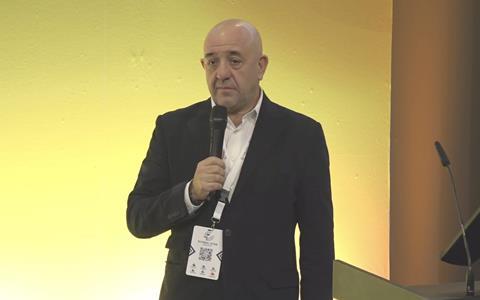Stefano Iorini looked at how new investments in cold chain infrastructure have the potential to grow the region’s fresh produce trade

The Middle East’s logistics network and the opportunities for further growth in the region was the focus of a Logistics Hub session on the opening day of Fruit Logistica.
Stefano Iorini, director of Saudi Arabia-based Global Star Group, took to the stage to emphasise the huge infrastructural expansions taking place in the country.
”We believe that fresh produce and logistics in Saudi Arabia will be affected in positive ways,” he said, highlighting the country’s GDP of over US$1.3tn and its growing population of under 30s that could see a shift in overall food habits.
It is not all smooth sailing, however, with Iorini pointing out some of the obstacles faced by fruit and vegetable logistics in the Gulf.
”It is quite challenging, and at the moment the most challenging part is the geopolitical situation with the Red Sea,” he confirmed. ”Two years ago we had Covid, so logistics are very much affected by unpredictable geopolitical changes.
“We closed our budget and then in one day everything changed when the Red Sea closed and our headaches started – we are still suffering with these headaches.”
Other challenges included local regulations, high energy costs, the sheer size of the region that needs covering, transportation infrastructure and the growing need for sustainability requirements, Iorini said.
Despite these issues, future ‘mega projects’ in Saudi Arabia – such as Neom, the FIFA World Cup, the Asian Winter Games and more – will require essential logistical infrastructure development and subsequently many opportunities for the fresh produce business.
”The country is desperate to be a hub for the whole Middle East,” he outlined. ”At the moment Dubai plays that role, but the way Saudi Arabia is operating right now we see it expanding logistical capacities not just for itself, but also for neighbouring countries.”



